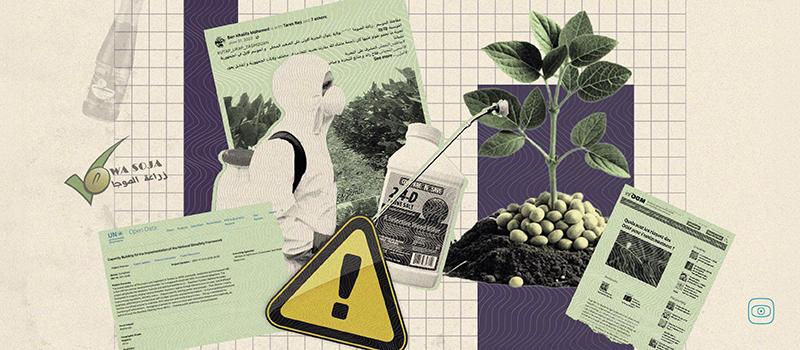In early 2023, Tunisian agricultural Facebook groups and pages began promoting a curious new trend: “successful soybean harvest experiments”, “introducing soybeans to Tunisia to fight climate change”. Yet none of these posts mentioned a key fact - the crops in question are genetically modified varieties, engineered for herbicide resistance and known to contribute significantly to land and soil degradation.
Prompted by a whistleblower, our team of journalists spent over two years investigating this silent development. Through multiple laboratory analyses carried out in Tunisia and France, we were able to confirm the genetically modified nature of the seeds and examine their potential environmental consequences. Once introduced into the landscape, these seeds can easily contaminate nearby fields, potentially pressuring Tunisian authorities into formally approving their use.
On the right: Illustration by Inkyfada





